» F. Scott Fitzgerald did not know, while writing The Great Gatsby (pub 1925), that the stock market Crash of '29 (and subsequent Great Depression) approacheth nigh. Nor could he ..
.. barring some divine, prophetic instinct .. or perhaps an artist's sense of intuition.
The artist, they say, is the antennae of the culture (Ezra Pound, perhaps?). Does the range of their sensitive antennae extend to things financial and economic? (Or simply catastrophic?)
If you have never read the book that Modern Library ranks #2 on its list of The Best English Language Novels of the Twentieth Century [100 novels, 100 years, 1 language] ..
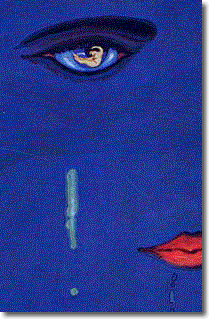 .. and that others rank #1, then this is a perfect time. Most opportune. (And all for only 190 pgs.)
.. and that others rank #1, then this is a perfect time. Most opportune. (And all for only 190 pgs.)
Cuz Baz will be releasing his vision of the Gatsby story in another week or two (.. starring Leo).
That gives you just enough time to bust a cinematic move on opening night. (~15 pages/day.)
Might be fun to leave the ending unread .. so you will be surprised at the theater.
[ Must be lots of people with the same idea, cuz I noticed that the book is fluctuating between #1 and #2 on Amazon's Best Sellers list. (Scroll down halfway to where it says 'Product Details'.) ]
» The Roaring 1920's vs The _____ 2020's
I must admit, the timing here does indeed feel TIMELY .. does it not? Because for you, me, and most everybody else .. the 20's is our very next decade. Ready or not, it lies next in line.
It is the decade currently on-deck .. currently waiting there for us on the stormy horizon of time .. to hurry up and finish our current-decade (now one third thru).
How will our twenties compare to those of Fitzgerald's age? To the Roaring Twenties [.. see t=2:05 ] to the decade of the days when the "restlessness approached hysteria." (Yowzah!)
I heard Grandma Rita say [ at t=3:15 ] about the Roaring Twenties » "People believed everything was going to be great always. There was an optimism in the air that you cannot even describe today."
That sounds a lot like » "If you weren't there, you can't even *imagine* what it was like." [ Try me, grandma. ]
A great opportunity, I think, to compare-n-contrast and perhaps even see if we can recognize any similarities or corresponding patterns ..
 .. because, in looking ahead to the future, we instinctively LOOK BACK to the past ..
.. because, in looking ahead to the future, we instinctively LOOK BACK to the past ..
.. as we attempt to plot the trajectory of our society, of our culture, of our way of life.
We seek insights, telling signs, that illuminate the angle of our ascent (or descent) among the nations .. our direction, our slope, our velocity, our rate-of-change, both short-term and longer term.
You get the feeling, reading Gatsby, that Fitzgerald realized what a remarkable age it was.
[ thanks in part no doubt to Zelda, a southern belle, tho she was surprisingly wild, being the daughter of an austere Alabama Supreme Court justice.
Remind me later to tell the story that ends with a teenage Zelda responding to her daddy's 2AM question by saying » "Isnt't this the time that all hussies come home?" ]
And that he therefore wanted to c.a.p.t.u.r.e the essence of his sparkling time .. of his magical age, of his too-good-to-be-true era .. about all this wonderful shit going on and on for ever and ever ad infinitum .. 'til kingdom come.
This Age of Permanent Prosperity. To capture the euphoric optimism as best possible. As artistically as possible. To bottle it in a book. In a novel. So future generations will to be able to sample for themselves a taste of the sparkling effervescence of the roaring twenties.
••• today's entry continues here below •••
» Literary Zeitgeist Throwdown of the Century?
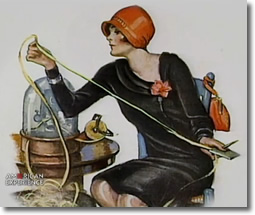 People seem to feel that Scott kicked ass, serious ass, and that he did as good a job as humanly possible.
People seem to feel that Scott kicked ass, serious ass, and that he did as good a job as humanly possible.
He created what has become the quintessential literary zeitgeist par excellence extraordinaire.
Notice here, where it describes the Great Gatsby by using the phrase » "exquisite short novel as perfect as anything in our literature."
There's an eyebrow-raiser, no? And I don't think it hyperbole.
Tho some do. Mostly women, it seems. ("Showboating critics," as AO calls one of them.)
Gatsby is clearly a man's book. (Even Fitzgerald himself said so.)
Obviously the story is told by a MAN (named Scott Fitzgerald). In that story, a MAN (named Nick Carraway) tells the story of ANOTHER MAN (named Jay Gatsby).
And the story is about » a MAN (named Gatsby) as he RELATES TO A WOMAN (named Daisy). In surprisingly obsessive and even uncontrollable ways. Surprising even to himself, at times.
Note the scene where Gatsby, after losing his shit and grabbing hold of Daisy's husband with ungentlemanly hands, says, "Uh sorry, Old Sport. I musta lost my shit there for a moment. You must excuse me most terribly. Let me buy you a new polo horse as compensation, as a way to make restitution for wrinkling your lapels."
Observe the look of pure satisfaction in Tom's eye, knowing he has just defeated Gatsby, according to the rules blue blood society. "I made you lose your shit, dawg. I win. Ha-ha-ha. You punk-ass blue-blood wannabe."
[ In real life, no true blue blood aristocrat would ever lose his shit like that.
No, sir. They are trained from birth to control their emotions. (Some feel that this is why the ultra-wealthy seem as tho they have a stick up their ass.)
Personally I feel this approach to parenting not very healthy .. seeing that "repression plays a major role in many mental illnesses."
Perhaps this is why the rich really are different from you and me. It makes you wonder about the effects of wealth on character. ]
The heart of the story (for me, anyway) is that of a poor, young man .. who so desperately wants to earn the love of a woman. But he knows that he will need money to do that.
This is the real-life shit that Scott Fitzgerald was actually LIVING during the years he was conceptualizing and writing the novel he eventually named The Great Gatsby. (Which is probably the main reason why Gatsby is called 'Great'.)
If you havent any money (.. as is all too common with the Penniless Artist), and you havent sufficiently large artillery (more about that later) .. and you happen to be a writer .. then you had better be a good writer ..
.
. that is, if you wish to woo the fine, young things .. if you desire to court the young and the beautiful ..
.. such as Daisy or Zelda, the "queen of the flappers." Very good. (Fucking Shakespeare.)
Both Scott Fitzgerald and Jay Gatsby are very much committed to doing just that (.. getting paid. Hundred dollar bill, y'all. Listen to the lyrics. $$$).
So insanely committed (.. in the case of Jay Gatsby, so we also suspect is the case with Scott Fitzgerald) .. that his every breath is aimed that way. In that general direction. Because that is the direction in which Daisy lies.
Fitzgerald was trying to write a kick-ass novel (Gatsby) to get money in order to keep Zelda, who was off fornicating with well-endowed French aviators. That's why the scene where Gatsby loses his shit represents the heart/apex of the story.
So wonderfully traumatic is the story that Jay Gatsby [ as-he-relates-to-a-woman-named-Daisy, but really as Fitzgerald himself had related to a woman named Ginevra, whose daddy told Scott, "Poor boys don't marry rich girls. So go away, Scott." ] .. can't even tell it himself.
No, he must get Nick Carraway to tell it for him .. and do other things for him as well (.. such as arrange clandestine meetings for him with Daisy).
This is a testament to the power of love .. the all-consuming power. Perhaps even more surprising » man's commitment to it. His commitment to the vision of love in his heart. (Or perhaps even his dependence upon it?)
So blissfully wonderful do the feelings feel. Almost too-good-to-be-true. The chemicals. Those wonderfully intoxicating chemicals. The hormones of love. (I can almost remember them.)
Nothing like that feeling of being wrapped in a blanket of love. Like God Almighty Himself has put the whole world on hold .. to smile down on you and your beloved for a breath or two.
Surely David must have felt the effect of these these hormones when he laid eyes on Bathsheba .. or shortly thereafter (.. strongly enough, it seems, to have her husband killed).
How can this hormone-thing be so strong? So unbelievably strong? (Enough to turn a man-of-God into a premeditated murderer.)
But who really cares? (Especially while you are experiencing the intoxicating effects.)
The problem here is only compounded by the observation that women seem to WANT a man to feel this way about them ..
.. which is probably why the Gatsby story is such a hit with women. They put themselves into Daisy's shoes. Her elegant, finely-crafted shoes.
My point » if you are looking for a narrative that makes flawlessly logical sense (.. not ordinarily the domain of lovers, either real or imagined) .. then yes, you may be disappointed. (I can totally see that.)
If you have never paid a visit to the Male Asylum of Love .. the only asylum that guys are trying every night to break into .. then yes, it is certainly possible that you might miss some of the more subtle narrative cues.
Think about it » Zelda really did end up in an insane asylum .. so you can be sure that she tried to take Scott with her.
I can't help but notice that Baz is the director who chose to tackle the Gatsby story for our modern age [ the 21st century ] .. because Baz is all about » feeling the passion .. and addressing the insanity that often acccompanies those often overwhelming feelings.
Indeed, is it not the case .. that Baz puts Nick Carraway (played by Tobey Maguire) in an Insane Asylum .. and tells the Gatsby-story FROM THERE .. as a series of flashbacks? ..
.. similar to what Baz did with Christian (Ewan McGregor) in Moulin Rouge!. Christian was not actually confined to an asylum, per se .. tho I'm sure he would have been admitted if somebody had actually taken him to one. Hard to say who was in worse shape.
If you are familiar with Luhrmann's other works, then you know that Baz stands in a place, and operates in an arena, that is a step or two from the mainstream. A step or two toward the poet's theme. Which is probably why he seeks the services of the musician. Of the minstrel. The gifted minstrel.
People either get Baz heart-n-soul or they don't get him at all. There seems to be no middle ground. So I am surprized that as many people enjoy his films as they do.
The most prominent and poignant part of Baz's vision/version, I'm sure, will be the MAGNITUDE of Gatsby's irrational and all-consuming LOVE for Daisy. Because that's where Baz lives. A scary place. Wonderfully scary.
Notice the key words that are used to describe the novel » perfect and anything.
This caught my attention because I sometimes catch myself using that very goal (zeitgeist c.a.p.t.u.r.e) as a way to challenge myself.
What words, phrases, cadence best characterizes the day in which we live? What are the cogs around which our society turns?
What things does our culture esteem? consider sacred? despise more than anything?
Serious food for thought and reflection. Truly marvelous shit. Challenging on multiple levels.
How can I best channel the impressions of our digital-nuclear age here-n-now into a single-serving entry the size of a can of Red Bull? .. that a person living 100 years from now [2112] might most readily grasp?
To a degree, yes, it is never far from personal opinion (.. from my perspective) but I apply myself far beyond what any reasonable person would consider due diligence .. to capture our age. (If nothing else I am true to myself.)
 One of the main reasons that our time today, our age, holds such promise .. is because...
One of the main reasons that our time today, our age, holds such promise .. is because...
Our age has the Internet, the Web ..
.. which promises to revolutionize humanity beyond the revolution we saw with the invention-of-written-language and spread-of-reading .. beginning around Socrates time.
So we have gone beyond the ability of society to read. And even beyond where Mr. Gutenberg took us (.. via moveable type, circa 1450).
We're talking big, big, BIG!
Another significant difference between us and Fitzgerald's age .. they didnt have the bomb. (That would come as a child of the next World War, some 20 years later.)
Oppenheimer was only 21 years old when Gatsby was published. (Probably still at Harvard, studying Chemistry.)
To give you some sense of time-perspective .. notice that both former presidents George HW Bush (daddy Bush) and Jimmy Carter were born in 1924, the year before The Great Gatsby was published.
They are both still alive, both 88, and both likely to retain fond memories of the Twenties about which Fitzgerald so eloquently wrote. Living people. Still living and alive today .. tho admittedly unlikely to live much longer. (What odds would you give them of seeing the 2020's?)
Imagine Jimmy Carter sitting by your bedside every night for a week .. reading you to sleep with a chapter from an original autographed copy of Gatsby ..
.. pausing only to sip a little brandy or cognac every now-n-then .. and interjecting with personal recollections of the era.
Now there's an evening. =)
» The Gatsby Masterpiece Written by a Young Man Still in his Twenties
Fitzgerald spent 3 years writing Gatsby. Three years is a long time to spend on a 190-page novel (.. unless you're Cormac).
Dostoevsky, for example, wrote the 800-page Brothers Karamazov in less than 2 years (.. while dying of emphysema and nursing a broken heart).
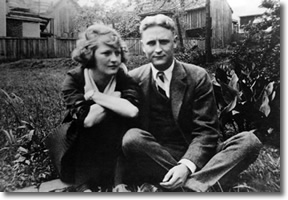 Fitzgerald spent (roughly) the years 1922, '23 & '24 working on Gatsby. (The novel was published in '25.)
Fitzgerald spent (roughly) the years 1922, '23 & '24 working on Gatsby. (The novel was published in '25.)
Fitzgerald was born in 1896. (He was 3 years older than Hemingway.)
So that means he wrote the story when he was aged 26-27-28. (Published when he was 29.)
[ His previous novel, The Beautiful and Damned, was serialized in the Metropolitan Magazine in 1921 and published in March, 1922. So it was done in 1921.
Note that Hemingway didnt publish his first novel, The Sun Also Rises, until 1926. ]
So he was young, as writers go. [ And 26 is the age which reminds me of Aaron .. and how the butterfly of tomorrow is getting trick-fucked. ]
Along these lines (of comparing the same decade from adjacent centuries) let me note .. that the last two lines of this trailer are:
Nick Carraway (Tobey): "You can't repeat the past!"
Gatsby (Leo): "You can't repeat the past?" (pause for effect) "Why of course you can."
Speaking of trailers, here is a different one. (Can you see the green light?) My favorite Gatsby trailer is » aqui. (Love is Blindness. But it feels so good.)
The film sports a soundtrack by artists who have been called frenetic and eclectic. Surely there must be some weak songs, but I have yet to find one.
I very much like the modern soundtrack. I feel that this is one of the things what precipitates the notion of a comparison of our time with Fitzgerald's time .. tho it is more suggested than shouted, and I doubt the filmmakers ever intended it that way.
Yes, the title song is indeed 'hauntingly beautiful', but I was definitely feeling Flo. What a wailer! Flo and the Wailing Machine. "Go, Flo."
» F Scott Fitzgerald is an Elegant Name
F Scott Fitzgerald (1896-1940) wrote only five novels in his short life (.. with the last left unfinished). Does this man know how to title a book or what?
 This Side of Paradise (1920)
This Side of Paradise (1920)- The Beautiful and Damned (1922)
- The Great Gatsby (1925)
- Tender is the Night (1934)
- The Last Tycoon (1941 posthumously)
Have you ever heard the old fable .. that Amish women, among the finest quilters in the world .. intentionally include an imperfection in their quilts? .. because they view human attempts at perfection as mocking God.
[ I lived in Lancaster, Pennsylvania, the heart of Amish country, for 5 years. Nice people. Very nice. ]
That's how I feel about The Great Gatsby .. not a word out of place. Downright engineered text. With an abundance of artistic flair. Almost obsessive in its quest for perfection. Carefully chosen words that hint at an unspoken subtext.
Reminds me of the movie Casablanca .. in its artistic perfection. Not a cigarette out of place. Almost too-perfect .. if such a thing were possible.
Even if you try to remain skeptical of all the accolades that you hear and read (.. like me, because I learned about Fitzgerald from Hemingway) .. Fitzgerald still manages to win you over .. smitten by the story.
Here is the exact 2-sentence stretch that did it for me (just 7 pages into the story) »
"The lawn started at the beach and ran toward the front door for a quarter of a mile, jumping over sun-dials and brick walls and burning gardens -- finally when it reached the house drifting up the sides in bright vines as though from the momentum of its run. The front was broken by a line of French windows, glowing now with reflected gold, and wide open to the warm windy afternoon ..."
I'm there. I very much love a lyrical writer. You can hear the music in their soul.
Fitzgerald's combination of meticulous engineering (wordsmith'ing) and artistic impulse .. allows him to craft prose that returns maximum bang for your buck .. the buck you spend on reading-attention ..
.. and especially on the investment in imagination that your bring along with you to your reading aviary. The story sucks you in. Fitzgerald "takes you there" (.. like a skilled lover).
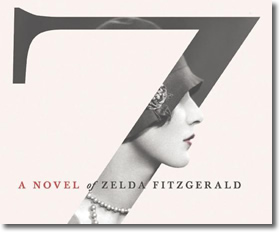 Here's another sample sentence that stood out:
Here's another sample sentence that stood out:
"Why they came east I don't know. They had spent a year in France, for no particular reason, and then drifted here and there unrestfully wherever people played polo and were rich together."
Crisp. Let me ask you .. would you consider the writing in those last two samples by Fitzgerald as complex? (Save your answer for later.)
» F is for Francis but Z is for Zelda
In real life, Fitzgerald's wife (Zelda) was jealous of his success .. before she went crazy, that is.
Zelda even told Scott (.. according to Hemingway, who spent time with the Fitzgeralds in Paris) that Scott's 'artillery' was too small to satisfy her. (Artillery here is my word.) Talk about performance anxiety. =)
You think I am kidding, but there is a WHOLE CHAPTER in Moveable Feast titled » A Matter of Measurements (5 pages).
There is another chapter titled » Scott Fitzgerald (30 pages). And even one about Zelda » Hawks Do Not Share (8 pages).
In a way, the novel is a story of Fitzgerald's relationship and romance with Ginevra. Which makes sense since writers often write what they know.
One would be foolish to think there existed no competitive rivalry between Fitzgerald and Hemingway (both personal & professional). Fitzgerald died first. So Hemingway got in the last word.
Hemingway also boldly called into question Fitzgerald's artistic integrity .. when Ernest characterized as 'whoring' .. the altering of stories to sell better .. when Fitzgerald told Hemingway that is what he did.
I love Hemingway. He influenced the trajectory of American prose with his short, clear, punchy style. No fluff. Keep it real.
Muscular is the word I think they use. Terse. Sleeves rolled up. No cufflinks here, you frou-frou boys.
"Where is that bull I was fighting? Anybody seen my safari gun? Oh, there it is .. sitting on my war-battered typewriter. More gunpowder soup, please. Yummy."
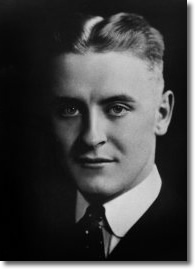 » Fitzgerald the Better Writer (than Hemingway)
» Fitzgerald the Better Writer (than Hemingway)
Now don't get me wrong (cuz I love Hemingway) .. but Fitzgerald is the better writer. By a comfortable margin. Surprisingly comfortable.
I realize we are talking about a multi-dimensional evaluation .. but I am talking about overall impressions. In my not-always-so-humble artistic opinion.
Hemingway seems to have the advantage in the (all important) Life Experience category.
I should note that whenever you start talking about best-of lists .. there are many.
Note that Le Monde (French boys) ranks Hemingway's For Whom the Bell Tolls at #8. Far higher than Gatsby at #46, or even Ulysses at #28.
So highly does Le Monde esteem Hemingway's title .. that Steinbeck's Grapes of Wrath is the only English novel ranked higher.
Have you noticed? .. how the more disillusioned you become, the more you see things as the French do. =)
In the spirit of full disclosure I should note .. that to some degree, pretty much every book I read .. feels like the best-book-ever-written.
So it is certainly possible, therefore, that I could read something like Hemingway's For Whom the Bell Tolls, and come away with a different opinion or perspective. But I doubt it. I sincerely doubt it.
Hemingway also made something of his experience in a war and Fitzgerald's lack thereof. Hemingway never said these words, but the spirit could be characterized as » "That's why my stories rock and your stories suk."
Hemingway's writing was something of a balancing act. Definitely technically sophisticated. His whole concept on writing, which he claims that he got from studying Cézanne's paintings, which were indeed revolutionary (even radical) .. was a minimalist approach.
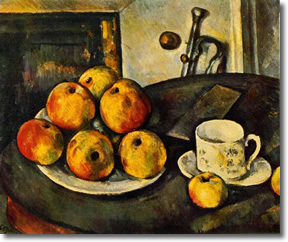 Pull out everything that you can. That *does* require discipline. Pound of flesh.
Pull out everything that you can. That *does* require discipline. Pound of flesh.
And the further you go in that direction, the more quickly a change here requires a change there.
Not so much with the paring down or distilling of phrasing, but story changes, even minor ones, can become expensive and maddening.
As the fabric of the story gets woven more tightly, you eventually reach a point of diminishing returns. But Fitzgerald powered on past.
Cuz he's got it bad for Miss Zelda, and she isnt too terribly impressed by the size of his wallet (.. among other things).
So he needs to bust a serious move.
[ This might be a good spot to mention (.. because it is a very cool topic and because it plays such a big part in Hemingway's writing) .. a little about Cézanne and his insights and his technique.
Which is to REMOVE certain elements of an image / painting .. thereby allowing your MIND to fill in the blanks .. thereby INVOLVING YOURSELF (your soul, your mind, maybe even your emotions) .. into the picture.
I bet you didnt even notice that the right side of the plate above is missing. Why didnt you notice? (Because your brain stuck it in there.)
Now, disagreements in literature have always existed. Of course. But most readers, I think, would agree that you do indeed feel more "involved" in Hemingways novels.
People may (and certainly will) dispute WHY they feel that way .. but few will contend that Hemingway's novels don't suck you in .. in a subtle-but-cool way.
That technique (of minimalist-to-subminimal) is artistic. Because the engineer-storyteller feels more comfortable including an abundance of narrative poles to support the story.
Then again, sometimes I think that Hemingway is just talking out his ass. I mean, it would be like your grandmother saying and asking about how you're enjoying her chicken soup » "I left out two ingredients, dear. How do they taste?" =)
Thru tedious study, Cézanne noticed interesting 'tricks' that the mind plays on the things we see .. on the way that electrical signals from your eye/retina .. are being interpreted by you brain.
Surely you have heard the saying » looks can be deceiving.
Speaking of what happens when you read Hemingway ..
.. I read Old Man & the Sea .. for which Hemingway won the Nobel Prize (1954) ..
.. while aboard Sidney's (gorgeous) 45-foot all-wood (teak) schooner ("The Schooner Escape") ..
.. mostly while we were moored at Catalina for the week of the 4th. Talk about putting you in the mood for a good sea story.
Everybody went to the island one day and I stayed behind on the boat and read. People paddled by in their kayaks and said things like, "She's got beautiful lines. Whatcha reading there?"
My own concept or paradigm of this approach .. of which Hemingway describes .. claiming to piggyback on Cezanne's genius .. is to first erect a scaffolding, then build your story's structure around the scaffolding.
Decorate as appropriate .. and finish by removing the original scaffolding. Then let them "Ooh" and "Ah" in wonder. "How did he do that?"
It is sorta like » you balance the story and characters and their actions .. off of ONE ANOTHER .. and not off of any fixed reference point.
Notice how Hemingways always starts a book in the middle of a story » Then there was the bad weather.
The #1 way that I feel I relate to Hemingway's approach .. is what I call » combing the hair. Cuz that's how it feels.
If you have ever combed your mother's wet hair after a bath when you were 5 years old .. then you know how, at first, there are many snags.
But you just keep going until there are NO MORE SNAGS. That brings uniformity to narrative. It feels like it was constructed in a single sitting.
The main problem here is » as the size of the text grows, you naturally have lots more knotty, wet hair to comb.
If nothing else, I try to make sure that the beginning of each entry is silky smooth to enter. Downright slippery.
I sometimes think » "Once the reader is in .. he's on his own. If he's a regular, then he has a good idea of what he's in for."
But I normally try to craft my entries slippery the whole the way thru.
The best technique to to set aside the text for a few weeks. The distance provides perspective that lets you see the forest upon return .. along with the earlier narrative trees. ]
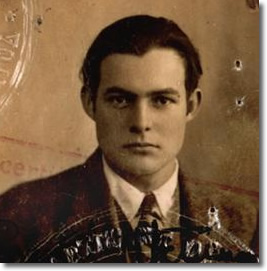 If Hemingway died first, we no doubt would have been left a chapter titled 'Ernest Hemingway' in an end-of-life memoir by Scott Fitzgerald ..
If Hemingway died first, we no doubt would have been left a chapter titled 'Ernest Hemingway' in an end-of-life memoir by Scott Fitzgerald ..
.. and maybe even a chapter [ short, very short ] titled » Hemingway's Phallic Terseness. =)
Thanks to Woody Allen I have already seen the Hemingway version of the Twenties in Paris (.. and LOVED! it). Now I will see the Fitzgerald version of the Twenties in America.
Notice how Woody Allen actually takes the viewer back-in-time .. as a plot device. I think that a logical extension of how the book takes you back there .. mind-blowingly well.
According to Hemingway, Scott fought Zelda (carried her, on his back) the whole way .. while writing, or trying to write, his novels. She tried to keep him drunk, or otherwise sabotage his work.
Is that not bizarre? You would think she'd be his biggest supporter, no? No doubt there must be other sides to the story. The life of a writer's wife can be lonely.
[ TS Eliot's wife was the worst. That might be why he considered April to be the cruelest month. ]
It ended bad for Ernest, sure (he opened his mouth and blew his brains out with a shotgun) but you could argue that it ended even worse for Fitzgerald .. since he only made it to age 44.
Heck, Fitzgerald died before James Joyce, who was born 13 years earlier and was never considered very healthy). And the decade was not pretty. (The 1930's.)
It is almost as tho Fitzgerald had his time in the sun and then was done. I don't really want to delve too deeply, because it sounds sad and dark, or which I have had more than my share.
There is wonderful story about him riding home in a horse-drawn carriage thru Central Park (NYC) and seeing the tall buildings on both side .. and weeping .. because he had everything he wanted and he knew he could never be so content ever again.
Reminds me of the way Alexander reportedly wept after he had conquered the whole world .. because there was nothing left to conquer. (I could think of worse things to cry over.)
Hemingway said (on page 8):
"The writer must be intelligent and disinterested and above all he must survive. Try to get all these [ qualities, such as talent + discipline + conscience ] in one person and have him come through all the influences that press on a writer.
The hardest thing, because time is so short, is for him to survive and get his work done."
Quote is taken from Green Hills of Africa (pg 27). Does that not sound like Hemingway is saying, "I am having a hard time staying alive." ? (Surviving.)
» Fitzgerald & the Art of Rewriting
I will go ahead and warn you here .. that my ego cannot wait to tell you .. the #1 way that I feel I relate to Fitzgerald. Similarities. I actually connect with him far better than I ever thought I would. (After hearing Hemingway's side of things.) Or maybe it's merely a matter of timing.
In the intro to the story, it says this:
"At the stage when most authors are finished with their work Fitzgerald was still perfecting The Great Gatsby. The published facsimiles of Fitzgerald's manuscripts and works-in-progress provide instruction on the art of fiction, which was the art of rewriting."
 Writing is essentially a 2-step process:
Writing is essentially a 2-step process:
- create
- edit
For me, two very different things. Two different mindsets. Almost two different people. Perhaps even two different personalities. (Talk about » Multiple Personality Disorder.)
I have noticed with myself .. consciously exploring and challenging the limits of my skill set .. that I can pretty much edit forever .. and continue to improve the text.
At some point I would imagine that I would arrive at a point where all the snags are combed out (edited out) of mom's hair. But in reality I never get there.
In other words, I never get to the end of my ability to craft a piece of text. Rather I can tell when it is time to move on. I'm with the Amish quilting ladies on this » best to leave an imperfection (or two).
It surprised me very much, when I worked with other writers .. and saw how quickly they would come to the end of their capabilities in that area. "I'm done. That's as good as I can do."
It took a while, but I realized that the rarity (freakishness?) was on my end, not theirs.
Now I have attempted to explain this away by claiming that the reason I can edit essentially ad infinitum is because I » continue to grow (as a person/soul) in any area to which I apply myself. And I think that indeed is the case. But I also think that sometimes there might be more to it. More about that later .. maybe.
I once told this guy who worked under me, "You write well."
His response surprised me. He said » "I'm actually a better editor than a writer."
It was obvious that he discriminated between writing and editing. I didnt know you could do that. I thought they were both part of the same thing (writing).
 Editing itself is basically a 2-step process:
Editing itself is basically a 2-step process:
- eliminate or replace sub-par words and phrases with better, more excellent, juicier words and phrases. Nectar of the gods.
- clarify potential ambiguity (.. unless of course ambiguity is the desired effect). The word 'potential' implies anticipation (which involves imagination) and knowing your audience.
To a degree, the more/further the writer-as-editor can 'dissociate' himself [ not the best word, but you get the gist ] from the writer-as-creator ..
.. the more versatile the perspectives he can take advantage of .. so he can craft his entry accordingly.
It would be like having someone hypnotize you into becoming another person .. so you could see how the text looks and reads with a fresh set of eyes.
It is the same reason that live musicians wear an ear microphone .. so they can hear what you hear. What the audience hears.
[ Notice that Carl Jung, after reading Ulysses, (that's right » the 1922 title that Modern Library ranks #1 as the Best English Language novel of the Twentieth Century), concluded that James Joyce was schizophrenic ..
.. a word that means "split-mind" .. from schizo (split) and phren (mind). I find that very telling and even a bit humorous. ]
My own paradigm of writing (that works for me) is very similar to the following:
And if you've ever worked with clay, or watched some, then you know the figure takes shape A LITTLE AT A TIME ..
.. according to some mysterious image-creation technology (.. internally mounted).
I normally prefer to start with as little clay as possible .. and see how the Sculpture Itself wants to develop. Let it develop itself .. organically.
Yes, the first part is wonderful .. but part two is where most writers live & breathe most of the time. And it is work .. requirng enormous sustained concentration. [ Inspired work is still taxing. ]
Sometimes, while you are working, more clay gets dumped onto your original lump .. which causes you to » extemporize .. which itself represents an interesting challenge.
By definition, a lump of clay falling out of the sky onto your original work is » zeitgeisty .. and makes you look at things that you normally would have never grouped together (.. something which itself can lead to interesting perspectives).
I normally edit online (something a pro would never do) .. because I find that having my lump-of-clay 'out-there' for all the world to see (on the web) .. motivates me to craft it into a worthy presentation.
As I round off the rough edges and splash glitter on the highlights, I learn more cool stuff in the process. That's sorta how my entries have developed over time.
A practiced writer, naturally, will have at his disposal a variety of shaping tools .. a variety of skills that he has honed over the years. Speaking of which...
» Open Mouth | Insert Words
Open Mouth | Insert Words
Another similarity that I noticed » Fitzgerald puts words into people's mouths (.. something I do myself from time to time). See here (page 11):
His speaking voice, a gruff husky tenor, added to the impression of fractiousness he conveyed. There was a touch of paternal contempt in it, even toward people he liked -- and there were men at New Haven who hated his guts.
"Now, don't think my opinion on these matters is final," he seemed to say, "just because I'm stronger and more of a man than you are."
This technique (of putting-words-into-people's-mouths) allows the author to get right-to-the-point he is trying to make .. without having to pussy-foot around by jumping thru unnecessary literary hoops.
You need to have a good sense of things (whether accurate or merely imagined) before you can put words into prople's mouths. Yes, I try to avoid this technique .. because it is usually better to let people talk for themselves.
But people can be Lying Shits (especially politicians and lawyers) and sometimes I just can't help myself (.. so clearly do I hear the voices speak).
Update - I just noticed that in today's entry I put words into the mouth of Grandma Rita [ at t=3:15 ] in one of the opening pararaphs up above. </update>
To be honest, I was never really conscious of the fact that I put words into people's mouths .. until I noticed Fitzgerald doing it. I have gone back and read a few of my previous entries, and yeah, I do do that. Heck, I even put words into the mouth of the state-of-Florida.
 » Daisy Buchanan
» Daisy Buchanan
Regarding the movie .. if you have not yet seen Carey Mulligan .. you are in for a treat. She is British.
At first you may be tempted to think her miscast. But you will quickly come to see (ever more clearly) the error of your initial judgment.
She is a rare talent .. with a gift for the most delicate subtlety .. so exquisite that you want to quick, put her under a glass dome .. to protect her from dust and other potential contaminants. You will see what I mean.
She does not use a hammer, like Leo does. (She does not even know that hammers exist.)
Some older people who I have talked to do not like Leo as a leading man because they feel he is too young (.. they usually cite Aviator, where he played Howard Hughes). Hard to believe that Leo is now 38.
I have always liked Leonardo, specially his flirtations with the dark side. (Even people who don't like him cede to his talent.)
» Did Fitzgerald Include a Prophecy with his Gatsby Zeitgeist?
I am also reading this book with an eye for evaluating Fitzgerald's prophetic powers (see t=0:40). Did his story portend the soon-coming calamity that would bring so much misery and suffering and financial hardship to so many .. for so many years. (That would impress me most.)
And regarding our next decade (the rapidly approaching 2020's), I want to leave a promising decade for our kids .. one that does not include a record-breaking $20 Trillion national debt. That would be a national disgrace. A shameful disgrace.
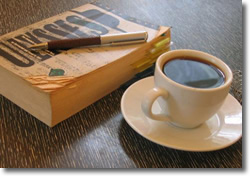 Fitzgerald's most memorable quote, I think, is »
Fitzgerald's most memorable quote, I think, is »
"Life is essentially a cheat and its conditions are those of defeat; the redeeming things are not happiness and pleasure but the deeper satisfactions that come out of struggle."
That's a big quote, dawg. Key phrase » deeper satisfactions of struggle. Tho it is hard to ignore the word » cheat. [ And he has more. ]
We get interesting results when we view Fitzgerald's sentiment in the context of today's stock market, which continues to set one new all-time high after another .. at a time when the average american has seen his wages stagnate for decades.
And that is one of the similarities between our time and Fitz's age » only a small slice of the population seems to be enjoying the resurgent financial and monetary extravaganza. [ I can't help but wonder » is that by design? Or merely a coincidence? ]
See if this next snippet resonates:
"The Great Gatsby is a critique of the American dream. It peels back a gilded veneer of success to reveal the hollow, rotting underbelly of class and capital in the early 1920s."
Note that the Twenties were NOT the Gilded Age that you may have heard of. The gilded age ended with the beginning of the century.
The phrase gilded-age basically means » pretty on the outside (like gold), but ugly on the inside (not gold). A phrase invented by Mark Twain.
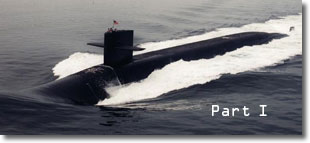 » Complexity vs Simplicity
» Complexity vs Simplicity
Remember earlier, when I asked you if you felt those samples of Fitzgerald text were complex?
The reason I asked is cuz .. the introduction to the novel begins with Matt Bruccoli noting Fitzgerald's own expresed aspirations:
"I want to write something new -- something extraordinary and beautiful and simple + intricately patterned."
So I look up the word » intricate and find it mean » having many complexly arranged elements.
And I note that simplicity and complexity are totally different things. And I ask the question » "How is that not a contradiction?" .. which led to curious approaches.
And I also note that programming is about methods to control complexity.
And I notice that F. Scott Fitzgerald's prose (.. too gorgeous to call mere text) does indeed evoke in me feelings that I associate with engineering (.. strange as that might seem).
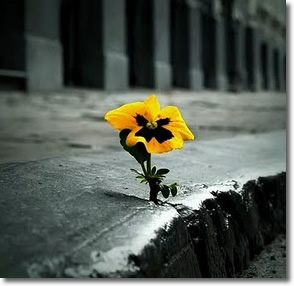 » Simplicity vs Complexity
» Simplicity vs Complexity
Anyway this is an interesting topic for me to explore (.. the relationship of complexity to simplicity and vice versa) ..
.. tho I am not entirely sure why.
Tho intuitively I sense that .. as complexity grows (.. whether in programming or literature) ..
.. simplicity must also expand .. in order to compensate for the complexity. No?
Regulars might recall that I discussed this concept in my first entry of the new year. So it is something I have been thinking about.
This complexity-into-simplicity alchemy seems like it must involve some sort of artistic distillation. (A painful process, I'm sure.)
Do you think that Gatsby still applies to our society / culture today? I think that the subtext is that greed can sometimes rise to such a point .. that it itself becomes a spectacular-spectacular thing to behold. Like a freak of nature.
I also noted that the book was written only a few years after the war ended. The end of the pretty. Hello to ugliness on such a scale that people simply couldnt handle it.
Wars tend to fuck-up society .. or at least the part of society that fights them.
» #1 Similarity Between Roaring Twenties & Our Age Today
I got it! The #1 way that Fitzgerald's age mirrors our own here-n-now [ spring of '13 ] .. is that we have both been » disillusioned. No?
The people who lived in the Roaring Twenties were disillusioned by the ugly, nasty First World War (1914-1918) and we (you & me) by the global economic meltdown/crisis of 2008. We are both each about 4 or 5 years out from those destabliizing, demoralizing events.
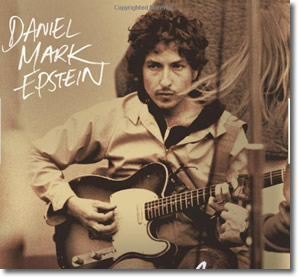 Note that both events were » global .. in scale-n-scope.
Note that both events were » global .. in scale-n-scope.
The Great Gatsby begins in 1922, which is 4 years after the end of WW1. That is also the year Fitzgerald began writing the novel.
So 1922 is a good number. He finished the novel in '24, so you could theoretically stretch that number by two years.
You and I (here-n-now) are 5 years out from the economic meltdown/collapse of 2008. And (unless you own a hedge fund) it still feels pretty shitty.
I think this is the reason why the release of the Gatsby movie feels 'timely'. Seems obvious now. Before I could only feel the timelinesss. Now I can see it, too.
Disillusionment is a funny thing. Despite the passing of the centuries, disillusioned people still respond the same (.. to disillusionment).
Dylan said » "When you got nothing, you got nothing to lose.
You're invisible now, you got no secrets to conceal."
There is also an Old-Money vs New-Money thing going on in Gatsby. I am not clear on this rift, but it seems as tho the Old Rich are saying to the New Rich » "Even tho you are fabulously wealthy like us, you are still beneath us .. because you do not have the Blue Blood Breeding that our money bought for us."
While the New Rich seem to be saying to the Old Rich » "You are hollow and rotting inside. You have no heart. You think your wealth makes you something special, but you can't even see how wretched you are. You use your money to buy influence to trick-fuck honest people."
Today we got us a rich vs poor thing going on. (Mostly the rich kicking the shit out of everybody else.) Would you care for a supporting hyperlink? Or two? =)
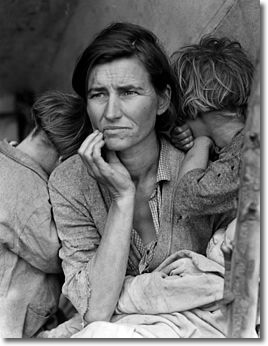 A lot of people suffered very badly for a very long time during the Great Depression. You probably don't want to know. (How many, how badly, how long.)
A lot of people suffered very badly for a very long time during the Great Depression. You probably don't want to know. (How many, how badly, how long.)
» Differences
The #1 way in whic our two ages DIFFER .. is that Fitzgerald's age was (from the book's introduction) » "primarily an era of possibilities and aspirations."
[ Note that the term aspirations is defined as » a strong desire to achieve something great. ]
Here is where our two era's diverge .. because our youth of today have had their aspirations dashed ..
.. by the diminished prospects that came with the recent economic collapse and the subsequent recovery that seems to benefit only those who already have more opportunities than they know what to do with.
And things in that area only seem to be getting worse.
» Deliciousness of the Shared Community Novel / Movie / Experience
Of all my Navy memories, one of the fondest comes from a patrol we did where lots of guys were reading the same book .. passing it around » Fools Die, by Mario Puzu .. the guy who wrote The Godfather. "I made him an offer he couldnt refuse."
I wonder where Mario got the idea for his title.
Fools Die takes you into the world of Vegas casinos .. just like the Godfather takes you into the world of the mafia. The casinos .. where management pumps in oxygen at 1AM .. to wake everybody up .. so they'll keep gambling.
 It seemed like a good chunk of the engineering department had read it. It was much fun .. to discuss the story with people who had already read it.
It seemed like a good chunk of the engineering department had read it. It was much fun .. to discuss the story with people who had already read it.
"What part are you at now? Okay, I'm gonna tell you just a little about what comes next .. cuz you're not gonna believe this shit..."
And it's fun to see how different people sometimes interpret the same scenes differently. Not incorrectly, just emphasizing different things. (Telling things.)
And I remember getting a sense of their true intelligence from their artistic descriptions. More so than any technical distinction via academic prowess.
So .. in a way, it seemed like the shared-experience was even better than the experience itself. Ya know?
I remember how Wendy, the Film school student, insisted, "Movies are meant to be seen in a social environment. That's a big part of the experience."
If nothing else, it's a good excuse to go to the movies on a Friday or Saturday night. (She also felt that an outstanding sound system was a big plus for the overall experience.)
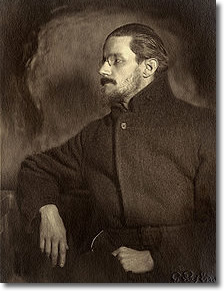 » Ulysses (1922) by James Joyce
» Ulysses (1922) by James Joyce
I must say .. after being so impressed with Fitzgerald & Gatsby .. and seeing that Modern Library ranks it #2 ..
.. does that not make you curious about the book they rank #1 » Ulysses? (1922) .. by Joyce, (1882-1941) who I met thru Hemingway.
He went blind at the end. Irishman. Paris, 1920's.
I heard Ulysses was dense and hard to read. Stream of consciousness. Avant-garde. Bleeding-edge shit, at the time.
Never read it myself. The whole book takes place in a single day .. I heard. (Dont quote me.)
Joyce was 14 years older than Fitzgerald, and 17 years older than Hemingway. They both looked up to him. He was the man. "Have you seen Joyce? What time does Joyce usually come in?"
Great photo of him » here.
Fitzgerald, Hemingway & Joyce .. three Irish boys. One of my best friends, probably my closest friend ever [the Dog], is an Irish boy (a purebred pedigree) .. from Hoboken .. right across the river from Manhattan.
My experience is that Irish boys make good friends. Very good.
Notice that, beyond heritage the three Irsihmen also had in common a change-of-perspective .. from their homeland to living as ex-patriates in Paris.
My experience has been that, sometimes, you can't see the obvious until after you've stepped away from familiar surroundings. From yourself. Vacate the familiar.
In my own life, I didnt develop a different perspective of my home state until after I left .. and witnessed other states, and other people from other states.
I am sure that Hemingway & Fitzgerald found the same could be said about America once they left. Perspective.
Because, as Einstein said » Things aint what they seem. (Perspective helps.) ■
Update - June 16, 2013
I read an interesting article today in the Sunday LA Times that we get delivered to the ranch. It is a Film/Movie review. I read the whole thing (.. something I rarely do).
The writer, Mark Olsen, actually discusses a trio of movies with similar underlying themes .. namely » The Bling Ring, another called Pain & Gain, and one more titled Spring Breakers ..
.. but he plays these movies (and especially their underlying themes, such as "issues of aspiration and collapse") off the Gatsby story .. and points out similar patterns and areas of contrast. (Very nicely.)
My ego is rather perplexed that I did not notice these things myself, but he is right. I especially took note of a passage he wrote near the end of the article. See here:
We now live in a world far beyond the one imagined [envisioned?] by Jay Gatsby, Daisy Buchanan & Nick Carraway, their Jazz Age vitality long since tamped into an old-world gentility.
In Spring Breakers, Pain & Gain, and now The Bling Ring, we are confronted by the BRUTAL SHOCK of an EMERGENT NEW VALUE SYSTEM .. existing within the distinctly American tradition of self-reinvention.
I enjoy it when people point out things that are obvious, yet that I have somehow overlooked.
Here are a few more quoteable quotes:
"These films examine the desire for more and find it a sign of spiritual malaise."
"Pain & Gain" is an ugly and unpleasant movie about ugly and unpleasant people, made by someone not known for subtlety or nuance."
"The lumbering directness of 'Pain & Gain' also makes the movie the least-mediated and arguably the most brutally honest of this bunch." [.. which makes me wanna go see it ]
For more along these lines, here's a Google search preconfigured for the query » the great gatsby. Here's another for the query » f scott fitzgerald. Another for » zelda fitzgerald and lastly one for » the great american novel
You can analyze the HTML details of this web page » here.
<intentional_text_spacer>
